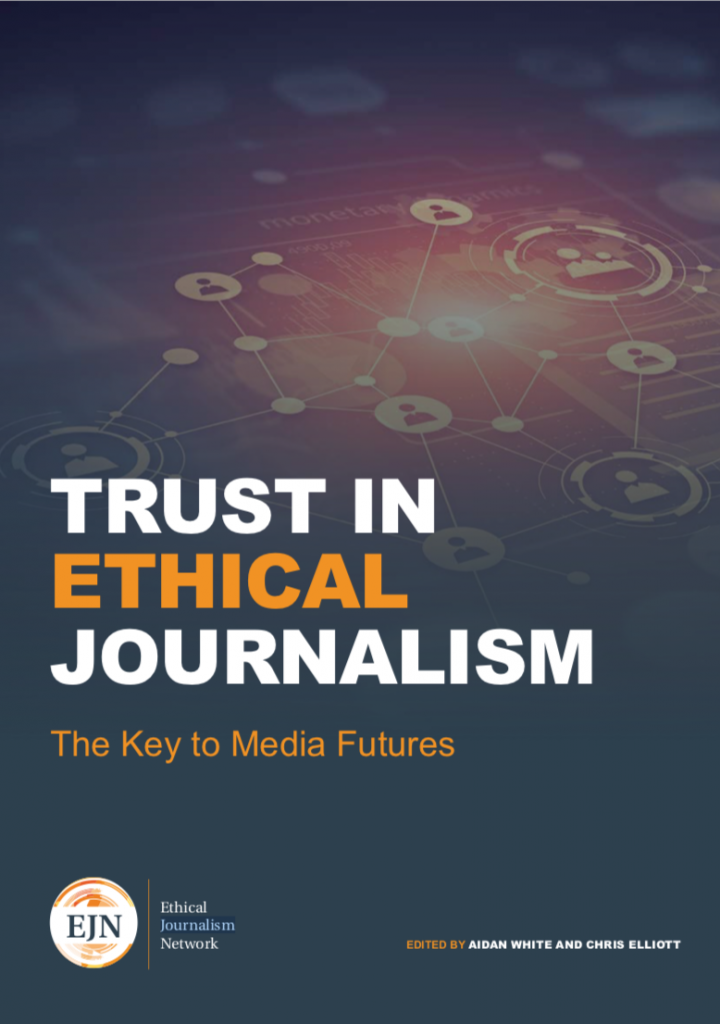REPORT
EJN Report: Trust in Ethical Journalism – The Key to Media Futures
Ethical Journalism Network Press Release
If 2017 was the year the world finally woke up to the threat of disinformation and the way internet technologies are secretly and subtly used to undermine democracy, then 2018 is becoming the year when ethical journalism, a human instinct beyond encoding and algorithmic definition, finally gets the recognition it deserves.
 This issue of Ethics in the News looks at how the communications revolution is continuing to pose more questions than answers over a public crisis of confidence, both in democracy and in sources of public information.
This issue of Ethics in the News looks at how the communications revolution is continuing to pose more questions than answers over a public crisis of confidence, both in democracy and in sources of public information.
How do we build trust in journalism and news media? Must we sacrifice human rights and pluralism in return for free digital services? How do we stem the flow of hate speech, propaganda and malicious lies without endangering free speech? How do we pay for the journalism that democracy needs to survive?
Around the world these debates rage, but in some countries and regions, the arguments are anything but theoretical. The rise of populism accompanied by a discreet use of technology to target voters or promote hate speech is tearing into the fabric of democracy everywhere. In countries wracked by economic and social crisis or in the aftermath of war, these threats are a major obstacle to peace and development.
In this issue we examine the technological, political and social realities of the information crisis: how algorithms and artificial intelligence are setting a new and potentially troubling agenda; how advertising platforms and the business of social media are undermining public trust; how democracy and political elections are open to undue interference.
But it is not all bad news. From the Middle East and the Balkans there are inspiring stories of journalists and media working together, even across political divides, to develop new initiatives to challenge the hate-mongers. In Turkey a new spirit of media solidarity is in the air. In Africa there are new approaches to reporting terrorism and conflict and a fresh debate about the protection of authors’ rights in the digital age.
Everywhere ethical issues abound – improving the role and portrayal of women in media; combating discrimination and intolerance; improving coverage of migration and human trafficking; and, importantly for all journalists and media, building a sustainable future for journalism without surrendering the cardinal principle of editorial freedom and independence.
The messages are mixed, but they point in one direction, towards a communications landscape that people can trust. It won’t happen overnight, but such a vision will not be realised at all unless strategies for the future embrace public interest journalism, good governance in media, and a public information system rooted in ethics and transparency.
The Ethical Journalism Network is a partner of the Public Media Alliance.